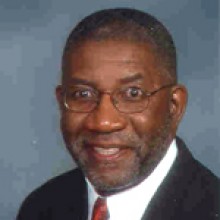By Bob Allen
An Arkansas judge who also is pastor of a Cooperative Baptist Fellowship church has halted the executions of eight death row inmates challenging a new law allowing the state to withhold information that could publicly identify the manufacturers and sellers of lethal-injection drugs.
Pulaski County Circuit Judge Wendell Griffen issued a temporary restraining order Oct. 9 barring the state from carrying out eight executions scheduled recently by Gov. Asa Hutchinson, the first two set for Oct. 21.
 Griffen, pastor of New Millennium Church in Little Rock, Ark., said allowing the executions would cause “immediate and irreparable injury” to the inmates, who filed a lawsuit in June challenging both the Arkansas Act 1096 of 2015, the state’s new lethal-injection law, and the particular lethal-injection protocol adopted by the Arkansas Department of Corrections.
Griffen, pastor of New Millennium Church in Little Rock, Ark., said allowing the executions would cause “immediate and irreparable injury” to the inmates, who filed a lawsuit in June challenging both the Arkansas Act 1096 of 2015, the state’s new lethal-injection law, and the particular lethal-injection protocol adopted by the Arkansas Department of Corrections.
“Proceeding with plaintiffs’ executions as scheduled, without allowing parties adequate time to conduct discovery, respond to all outstanding claims and motions, and proceed to a trial on the merits of plaintiffs’ challenges to the Method of Execution Statute and the ADC’s execution protocol, will rob plaintiffs of an opportunity to litigate their rights under the Arkansas Constitution,” Griffen said in the order.
With 34 men on death row and the last execution in November 2005, the Arkansas General Assembly passed emergency legislation in April to allow the state to carry out the death sentence amid shortages of drugs caused by pharmaceutical companies worldwide that refuse to sell drugs to U.S. prisons for the purpose of lethal injection.
The law requires confidentiality to protect drug providers from consumer boycott and gives the state latitude to use either a barbiturate or a protocol of three drugs including midazolam, a sedative associated in the past with botched executions and which was narrowly upheld as legal by a 5-4 U.S. Supreme Court decision in June.
Griffen denied the state’s Oct. 12 motion to dissolve the temporary restraining order and scheduled a hearing on the case March 1-2. The judge ordered the state to “identify or otherwise object to disclosure of the identity of the manufacturer, seller, distributor and supplier of any lethal-injection drugs” to be used in the eight executions.
The inmates claim the confidentiality clause is unconstitutional and that the lethal-injection protocol chosen by the Department of Corrections will subject them to cruel and unusual punishment.
They also accuse the state of breach of contract, citing settlement of an earlier lawsuit in 2013 in which the state agreed to reveal to the inmates any future source of execution drugs.
As a CBF pastor, Griffen has served in positions including the search committee that recommended Suzii Paynter as executive coordinator in 2013. Griffen preached at a commissioning service at the 2013 CBF General Assembly in Greensboro, N.C. He was also a presenter at A [Baptist] Conference on Sexuality and Covenant co-sponsored with the Mercer University Center for Theology and Public Life in April 2012.
Unlike many Baptist denominational bodies, the CBF does not take a public position on social issues like the death penalty. A number of current and former CBF leaders, however, recently spoke out publicly against the recent execution of Kelly Gissendaner, a graduate of a prison theology program offered by a consortium of Atlanta-area schools including CBF partner McAfee School of Theology at Mercer University and the first woman sentenced to death in Georgia since 1945.
Previous stories:
Faith leaders renew campaign advocating for woman on death row
CBF church member credits Kelly Gissendaner for second chance
McAfee prof sees hope in Gissendaner’s life and example, despite execution
